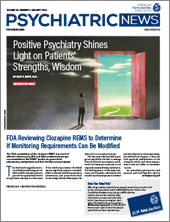Patients diagnosed with cancer are at a heightened risk of developing depression and anxiety, but does a diagnosis of depression and/or anxiety increase one’s risk of cancer?
This is a question that researchers have been debating for decades.
While there is evidence that depression and anxiety can increase inflammation, activate immune cells, and trigger the release of stress hormones that alter the body’s physiology to make it easier for cancer to spread, there is less evidence to support that these changes cause cancer (outside of some specific cases where viruses might be involved in cancer). Similarly, population-based studies exploring cancer incidence following a depression or anxiety diagnosis have produced conflicting findings.
A report in the journal Cancer, which combined data from 18 previous cohort studies (encompassing over 300,000 individuals), now adds evidence that depression and anxiety do not increase the risk of most cancers. Rather than looking at aggregate data, as is done in traditional meta-analyses, researchers from the multinational Psychosocial Factors and Cancer Incidence (PSY-CA) consortium extracted health outcomes for every individual participant for their analysis.
Lonneke van Tuijl, Ph.D., an assistant professor of clinical psychology at Utrecht University in the Netherlands, and colleagues focused their analysis on studies that monitored individuals over time and took assessments of depression, anxiety, and cancer. The cohorts included populations in Canada, Norway, the Netherlands, and the United Kingdom.
After excluding individuals who had a history of cancer and those who were diagnosed within one year of their psychiatric diagnosis, the final sample included 319,613 individuals and 25,803 cancer diagnoses. The researchers looked at cancer incidence overall, as well as six common cancer subtypes:
•
Alcohol-related cancers (such as oral-esophageal, liver, breast, and colorectal cancers)
•
Smoking-related cancers (such as lung, oral-esophageal, and nasal cancers, as well as myeloid leukemia)
After the researchers controlled for age, sex, and other sociodemographic characteristics, they found no association between a depression or anxiety diagnosis and subsequent diagnosis of any overall cancer, breast cancer, prostate cancer, colorectal cancer, or alcohol-related cancer.
The researchers found that a depression diagnosis was associated with a 58% increased risk of lung cancer and 24% increased risk of any smoking-related cancer. Likewise, an anxiety diagnosis was associated with a 60% increased risk of lung cancer and 16% increased risk of any smoking-related cancer.
When Van Tuijl and colleagues controlled for additional factors such as family cancer history, smoking, drinking, and physical activity, the increased risk of lung and smoking-related cancer fell.
“Indeed, previous studies have attributed the association between depression and smoking-related cancers to increased prevalence of smoking among depressed persons,” the authors wrote. “Further research is required to test whether depression and anxiety interact with or moderate the effects of health behaviors on the incidence of lung and smoking-related cancers.”
Van Tuijl and colleagues acknowledged that their analysis considered only a diagnosis of depression or anxiety as a baseline variable, so it is possible that some individuals with severe or chronic depression may be at higher risk for some types of cancers. The analysis also did not explore whether depression or anxiety impacted cancer progression or survival.
This study was supported by grants from the Dutch Cancer Society, UK Medical Research Council and Wellcome, Netherlands Organisation for Health Research and Development, the National Institute on Aging, and the University of Bristol. ■

